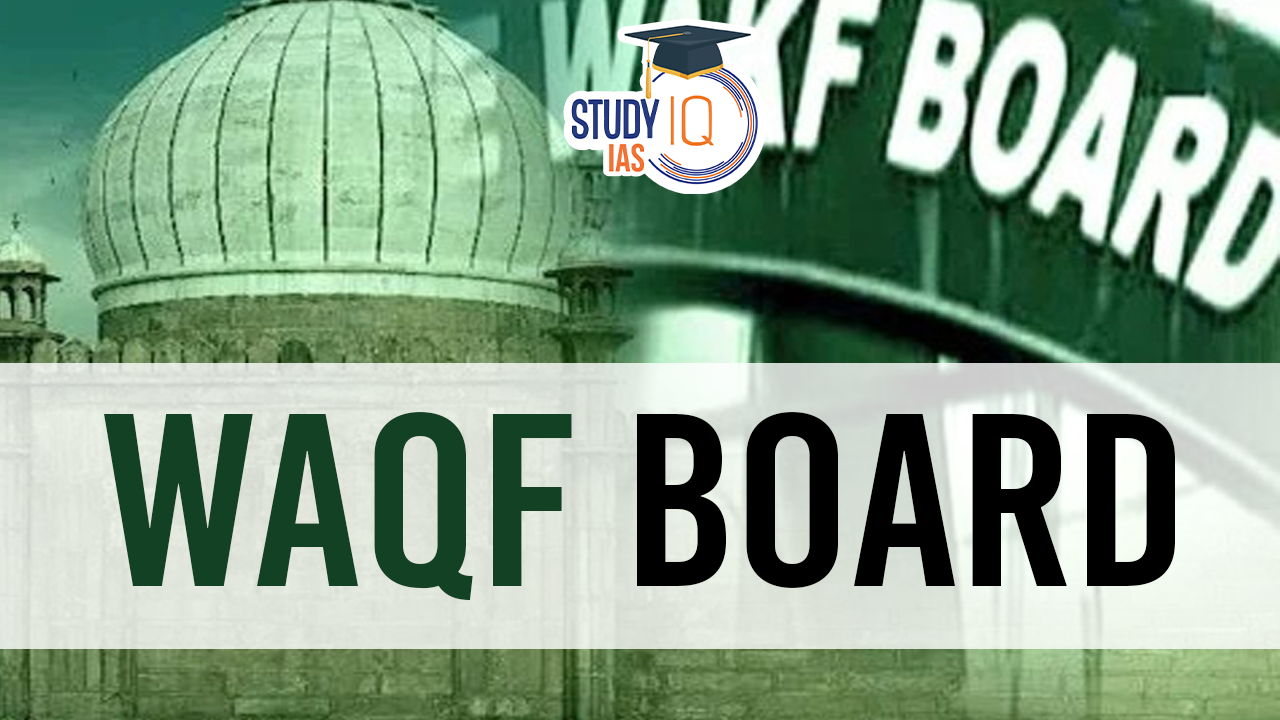Table of Contents
Recently, the Waqf Board has been at the center of significant controversy, particularly highlighted by the ongoing Shimla Mosque Dispute. This dispute involves a mosque in Sanjauli, Shimla, which was expanded from a single story to five stories. The controversy has sparked protests and legal scrutiny, drawing attention to the Waqf Board’s role and functions. This article provides a comprehensive overview of the Waqf Board, including its structure, responsibilities, and the recent developments that have brought it into the spotlight.
What is the Waqf Board?
The Waqf Board is a statutory body established under the Waqf Act of 1995. It is responsible for managing properties donated or dedicated for religious or charitable purposes under Islamic law, known as Waqf properties. These properties can include mosques, dargahs, graveyards, and other assets that are intended to benefit the community.
Structure of the Waqf Board
The Waqf Board is constituted by the government and typically includes:
- Chairperson: Appointed by the state government, the chairperson oversees the board’s activities.
- Members: The board comprises several members appointed by the government, including representatives from the Muslim community and experts in legal and financial matters.
- Secretary: The secretary is responsible for the administrative functions of the board and acts as the primary point of contact.
Functions and Responsibilities of Waqf Board
- Management of Waqf Properties: The board ensures that Waqf properties are managed and utilized according to the original intention of the donors. This includes overseeing the maintenance, upkeep, and proper use of these properties.
- Regulation and Oversight: The board regulates the administration of Waqf properties, ensuring that they are used for charitable and religious purposes. It also monitors the financial transactions related to these properties.
- Dispute Resolution: The board handles disputes related to Waqf properties, including issues of ownership, management, and misuse. It provides a platform for resolving conflicts between parties involved in Waqf administration.
- Compliance and Accountability: The board ensures compliance with the Waqf Act and other relevant regulations. It promotes transparency and accountability in the management of Waqf properties.
- Inspection and Audits: Regular inspections and audits are conducted to assess the condition of Waqf properties and ensure that they are being managed properly.
Recent Developments
Waqf Amendment Bill 2024
Recently, the Union Minority Affairs Minister Kiren Rijiju introduced the Waqf Amendment Bill 2024. This bill proposes several key changes to the Waqf Act of 1995, including:
- Enhanced Governance: Strengthening the governance framework for Waqf properties to improve management and oversight.
- Stricter Regulations: Introducing more stringent regulations for the administration of Waqf properties to prevent misuse and ensure adherence to legal standards.
- Increased Transparency: Mandating greater transparency in the financial dealings related to Waqf properties and improving public access to information.
- Dispute Resolution Mechanisms: Enhancing mechanisms for resolving disputes related to Waqf properties more efficiently.
The bill has been referred to a Joint Committee of Parliament for detailed examination and recommendations.
Shimla Mosque Dispute
The Shimla Mosque Dispute has recently brought the Waqf Board into the spotlight. The dispute involves a mosque in Sanjauli, Shimla, which expanded from a single story to five stories.
The Waqf Board asserts that the expansion was carried out in compliance with regulations, while local Hindu groups claim it was unauthorized and encroached on government land. Protests demanding the demolition of the expanded portions have led to clashes with police and heightened tensions in the region. The case is currently under legal scrutiny, with the next court hearing scheduled for October 5.
Waqf Board UPSC
The Waqf Board is integral to managing and overseeing Waqf properties in India, ensuring they fulfill their intended charitable and religious purposes. Recent developments, including the Waqf Amendment Bill 2024 and the high-profile Shimla Mosque Dispute, underscore the board’s critical role in property management and legal governance. Understanding the Waqf Board’s structure, functions, and the context of recent controversies is essential for grasping its impact on community management and legal oversight.


 Places in News for UPSC 2025 for Prelims...
Places in News for UPSC 2025 for Prelims...
 Governor's Assent to State Laws and Bill...
Governor's Assent to State Laws and Bill...
 SAMARTH Udyog Bharat 4.0: Transforming I...
SAMARTH Udyog Bharat 4.0: Transforming I...





















